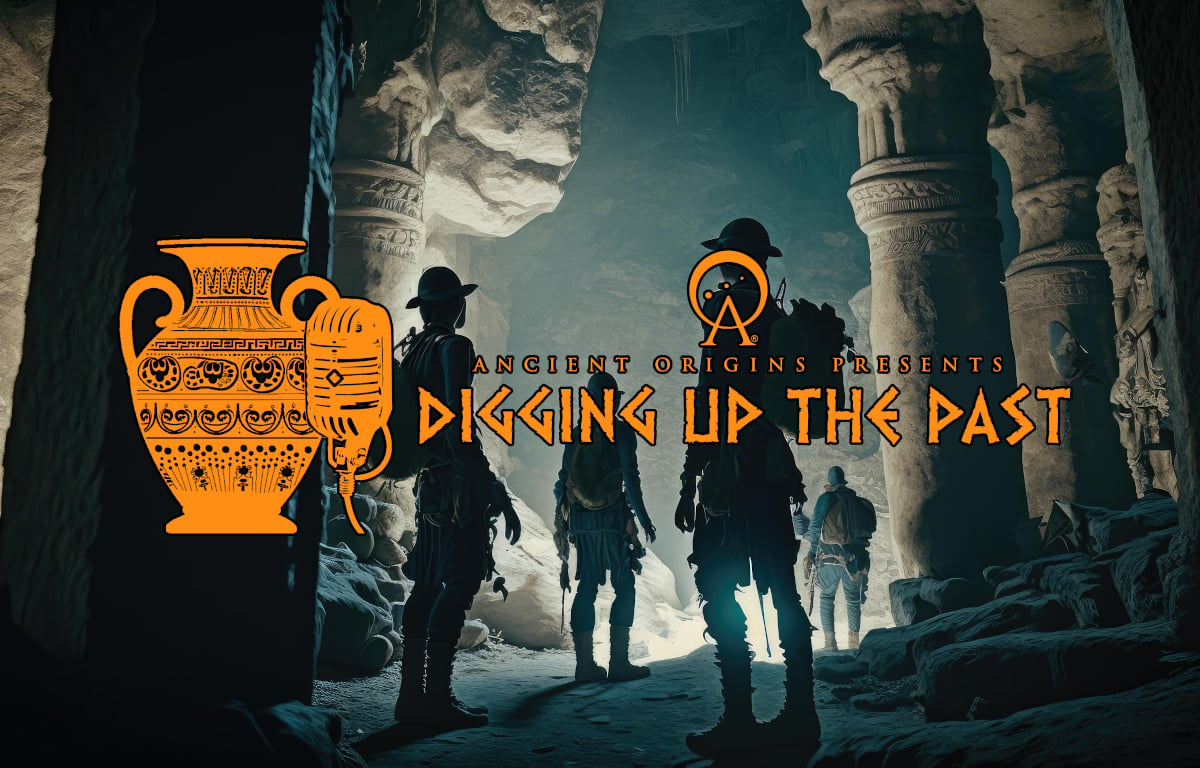
Podcast: Digging Up The Past: Episode 24: The Unsung Heroines of the Ancient World
Episode Description
In this exciting episode we talk about all sorts of topics with historian, Mary Naples. We talk about her publication, Unsung Heroes: Women in the Ancient World. We also discuss the Minoans, Mycenaeans, Romans and even the Canaanite cultures of the Eastern Mediterranean, the Bible and more!
About the author
After earning a BS in psychology from Arizona State University, Mary Naples pursued a career in high-tech sales and recruiting before fulfilling a lifelong dream of continuing her education. Long fascinated with the ancient world, Mary went on to earn an MA in Humanities with an emphasis in Women’s Studies from Dominican University of California. While at Dominican, Mary discovered a deep enthusiasm for unearthing stories about ancient women that have long been buried.
Since graduating in 2013, she has been a contributing writer for online periodicals about the ancient world, including Ancient Origins. In 2023, she published her first book, Cult of the Captured Bride: How Ancient Women Took Power, which examines how female participants found empowerment in a feminine fertility festival of ancient Greece. In June of 2024, she published her latest book titled Unsung Heroes: Women in the Ancient World, a collection of twenty-five articles about women from the dawn of ancient Greece to the last vestiges of the Roman Empire. When she is not researching the ancient world, Mary enjoys working at her local library. She lives with her husband, Tim, and their cat, Ariadne, in Sausalito, California.
You can read more about her work at: www.femminaclassica.com
Excerpt
Petros: But the writers that come to us, at least from the Greco-Roman world especially, were mostly men. And when they typically wrote about women, They wrote about them as, you know, I don't even know how to articulate this. They wrote about them usually in the negative light. Either they were a bad influence on more virtuous men or they were, you know, responsible for, you know, the problems or troubles of the time. It was... it was they were always portrayed in some sort of negative light, or they were completely omitted out of history. It's just, I remember one time, I was... you know, reading and researching Roman history in it. And it just dawned on me, well, what about the women in Roman society? We don't hear anything about them, unless they're spoken of as just in passing as the wife of so and so. So it's amazing that you are devoting your studies and your writings to this topic, because there's, like I said, you're giving these women, both of historical significance and of myth and stories, a voice that the ancient writers didn't.
Mary: Right. Yes, it's very true. And I was looking over some of my notes last night. Cleopatra, Empress Theodora, and Agrippina the Younger were extremely disparaged by the ancient writers. All we know about those three are what the ancient writers want us... For example... Cleopatra was disparaged by Horus, who called her a fatal monster. Propertius called her a whore queen. Lucan, in his elegies, called her Egypt's shame. And of course, there's Virgil and the Aeneid, who fashioned Dido after after Agrippina, rather after Cleopatra, whereas Agrippina the Younger, the only time she's ever talked about are really the three people who write about her, Tacitus, Suetonius, and Cassius Dio. They vilify her completely. You would think you would think she was like the most vile creature on the planet you know she's trying to seduce her own son um they make up ridiculous stories that and the same can go for Theodora i call her Theodora the great um the empress Theodora was married to Justinian the great she was vilified by the poison pen of Procopius and that's all and and and the fact is um modern historians have also kind of uh favored that those male misogynist writers um the the ancient um historians and uh they haven't really that dove too much into it either um into what their real personalities were and what their real achievements and their achievements were great um and all the three of them that i mentioned um they're you know it rivaled any emperor um the you know male equivalent
Petros: Yeah and and that is interesting though you do touch on you know a problem in, in more modern society. Although I'm, in recent decades, you're starting to see the transition where it's, it's not, you're starting to see that things may not have been the way these writers wrote about.
Mary: Thank goodness.
Petros: Yes. But, you know, and, and, and I mean, in no way, shape or form, am I defending, you know, the way um things had been until recently but up until you know modern archaeology and and modern psychology until these modern disciplines started to shed more light on the ancient world all we had were these classical writers right so there was nothing to contradict there was nothing to say that this was right or this was wrong. It's just what we knew and we in in this was what we knew for not just hundreds but thousands of years.
Mary: Yeah.




